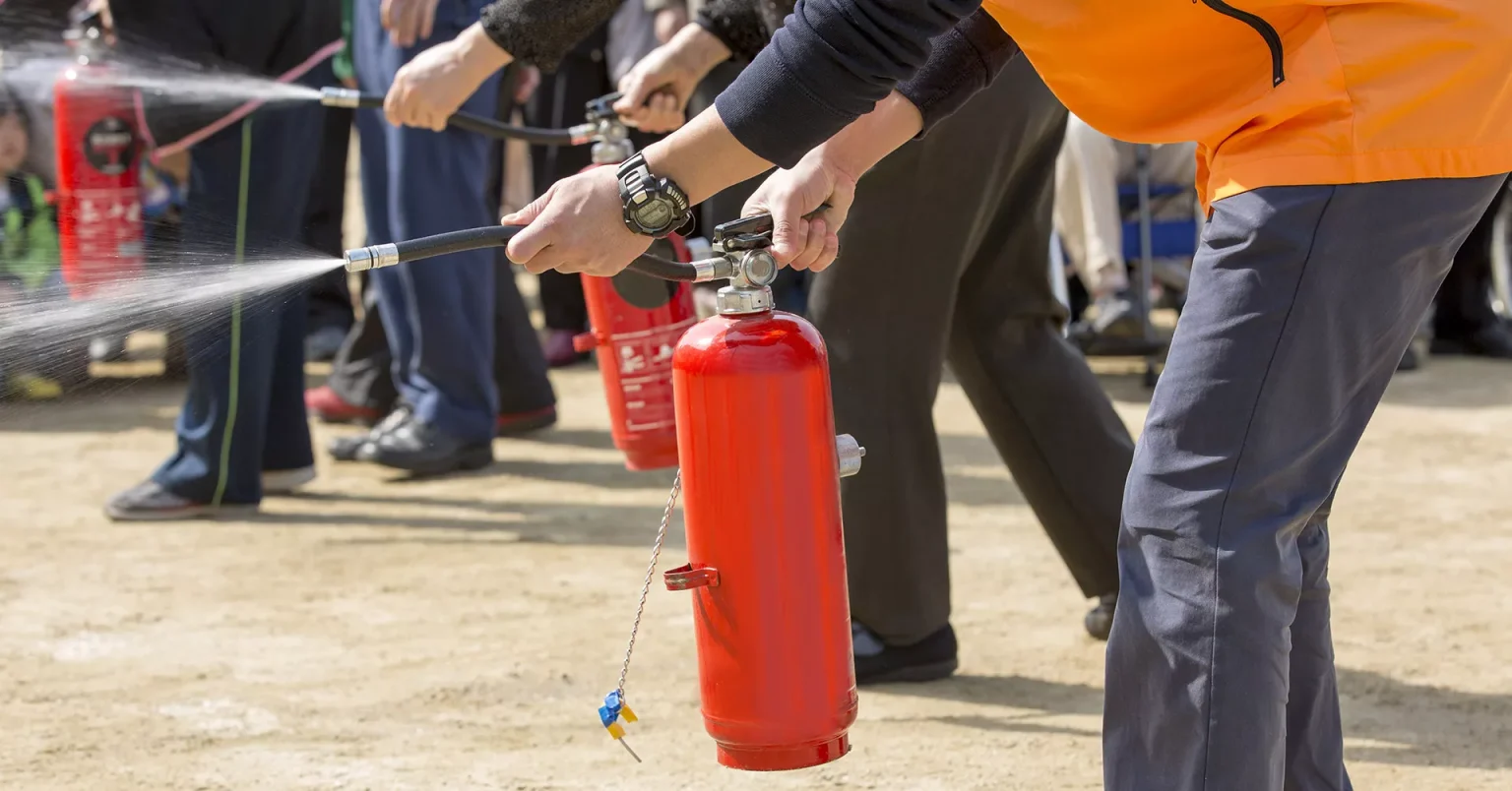Introduction to Fire Extinguisher Checks
Workplace safety relies heavily on proper fire prevention and control measures, and among the most important of these are regular fire extinguisher checks. Businesses must ensure that all extinguishers on their premises are in good working condition and ready to use in the event of a fire emergency. Regulations require inspections and maintenance not only to ensure compliance with safety laws but also to protect lives, assets, and operations. Regular fire extinguisher checks are a key part of risk management, offering peace of mind that equipment will function correctly when needed most.
The Importance of Fire Extinguisher Checks
Every year, businesses face costly damages from workplace fires that could have been minimized or avoided with the right safety measures in place. Fire extinguisher checks are not optional; they are vital to ensuring extinguishers meet legal requirements and operate effectively. A neglected extinguisher can fail during an emergency, placing employees, visitors, and property at risk. By carrying out scheduled checks, businesses demonstrate their commitment to health and safety while also safeguarding their investments and reputation.
Legal Requirements for Fire Extinguisher Checks
Fire safety laws mandate that all workplaces must have suitable fire extinguishers available and regularly inspected. In the UK, regulations such as the Regulatory Reform (Fire Safety) Order 2005 outline the responsibility of employers to ensure that equipment is maintained and ready for use. Fire extinguisher checks typically include monthly in-house inspections alongside annual professional servicing carried out by qualified specialists. Compliance with these requirements helps businesses avoid penalties, legal liabilities, and increased insurance costs.
Monthly Visual Fire Extinguisher Checks
Monthly inspections can usually be carried out by a responsible staff member. These checks involve ensuring that extinguishers are in their designated places, not obstructed, and have visible instructions. Pressure gauges should be within operational ranges, pins and seals intact, and no visible signs of damage or corrosion present. Documenting these monthly fire extinguisher checks creates a clear record of compliance and proactive safety management.
Annual Professional Fire Extinguisher Checks
While monthly inspections are crucial, annual professional servicing is essential to ensure extinguishers meet safety standards. Certified technicians test, service, and, if necessary, replace faulty units to keep them fully functional. Professional fire extinguisher checks include weight verification, internal inspections, discharge tests, and re-pressurisation where applicable. This detailed process ensures equipment reliability and extends its operational lifespan.
Different Types of Fire Extinguishers and Their Checks
Workplaces often require different types of extinguishers depending on fire risks present. Each type requires specific inspection procedures during fire extinguisher checks.
Water Fire Extinguishers
Used for Class A fires involving paper, wood, and textiles. Checks must confirm water pressure levels, hose condition, and secure storage.
CO2 Fire Extinguishers
Effective for electrical fires, CO2 extinguishers require weight and pressure checks as well as nozzle inspections to prevent blockages caused by frost or dirt.
Foam Fire Extinguishers
Used for flammable liquids, foam extinguishers must undergo agitation checks to ensure the solution is functional, with seals and hoses inspected for leaks.
Dry Powder Fire Extinguishers
Suitable for multiple fire classes, these extinguishers must be shaken during checks to prevent powder compaction. Pressure readings and valve conditions are closely examined.
Wet Chemical Fire Extinguishers
Primarily for kitchen environments with oil and fat fire risks, these extinguishers must be inspected for nozzle blockages and secure seals to guarantee readiness.
Benefits of Regular Fire Extinguisher Checks
Routine fire extinguisher checks provide several benefits beyond compliance. They reassure staff that safety measures are in place, reduce downtime in emergencies, and prevent costly damage from fire incidents. Insurers often require evidence of regular inspections before approving claims. Moreover, regular checks save businesses money in the long run by identifying and fixing minor issues before they turn into major replacements.
The Role of Professional Fire Safety Services
Although businesses can perform in-house monthly inspections, professional fire safety services are essential for thorough, detailed, and legally compliant fire extinguisher checks. Companies such as RB Services provide expert inspections, offering detailed reports, certification, and guidance on fire safety planning. By using professional services, businesses not only ensure compliance but also reduce liability and gain expert support tailored to their unique risks.
Tailored Solutions for Different Businesses
Every workplace is unique, and fire risks vary across industries. Offices, warehouses, schools, healthcare facilities, and restaurants all require specific approaches to fire safety. Professional providers of fire extinguisher checks tailor their inspection plans to each business, ensuring no risk area is overlooked.
Training and Awareness with Fire Extinguisher Checks
Part of a successful fire safety strategy involves ensuring employees know how to use extinguishers effectively. Professional inspectors often provide advice and training during fire extinguisher checks, reinforcing workplace awareness and preparedness. This dual approach of inspection and education empowers staff to act quickly and safely in an emergency.
Common Issues Identified During Fire Extinguisher Checks
Regular inspections help identify problems that could compromise safety if left unaddressed. Common issues include missing tamper seals, discharged extinguishers, corroded cylinders, faded labels, blocked access points, and incorrect extinguisher placement. Each of these risks reduces the effectiveness of fire safety systems, which is why scheduled fire extinguisher checks are so vital.
Fire Extinguisher Checks and Workplace Compliance Audits
During health and safety audits, inspectors often review fire safety procedures and documentation. Businesses with complete records of fire extinguisher checks are more likely to pass audits with confidence, avoiding compliance failures and penalties. Proper documentation also strengthens insurance claims and demonstrates corporate responsibility.
Partnering with RB Services for Fire Extinguisher Checks
RB Services is a trusted name in workplace safety, providing comprehensive fire extinguisher checks that meet industry standards. Their expert team delivers inspections across multiple sectors, ensuring compliance, safety, and peace of mind. With tailored solutions, detailed reports, and nationwide coverage, RB Services helps businesses create safer environments for staff and visitors alike.
Conclusion
Regular fire extinguisher checks are a cornerstone of workplace safety. From legal compliance to operational readiness, businesses cannot afford to overlook this essential task. By combining monthly in-house checks with annual professional inspections, employers can ensure that extinguishers remain functional, reliable, and compliant. Partnering with experts such as RB Services provides additional assurance, offering professional guidance and detailed reporting that strengthens fire safety strategies. For any business, prioritizing fire extinguisher checks is not just about ticking a compliance box—it is about protecting lives, assets, and long-term success.




